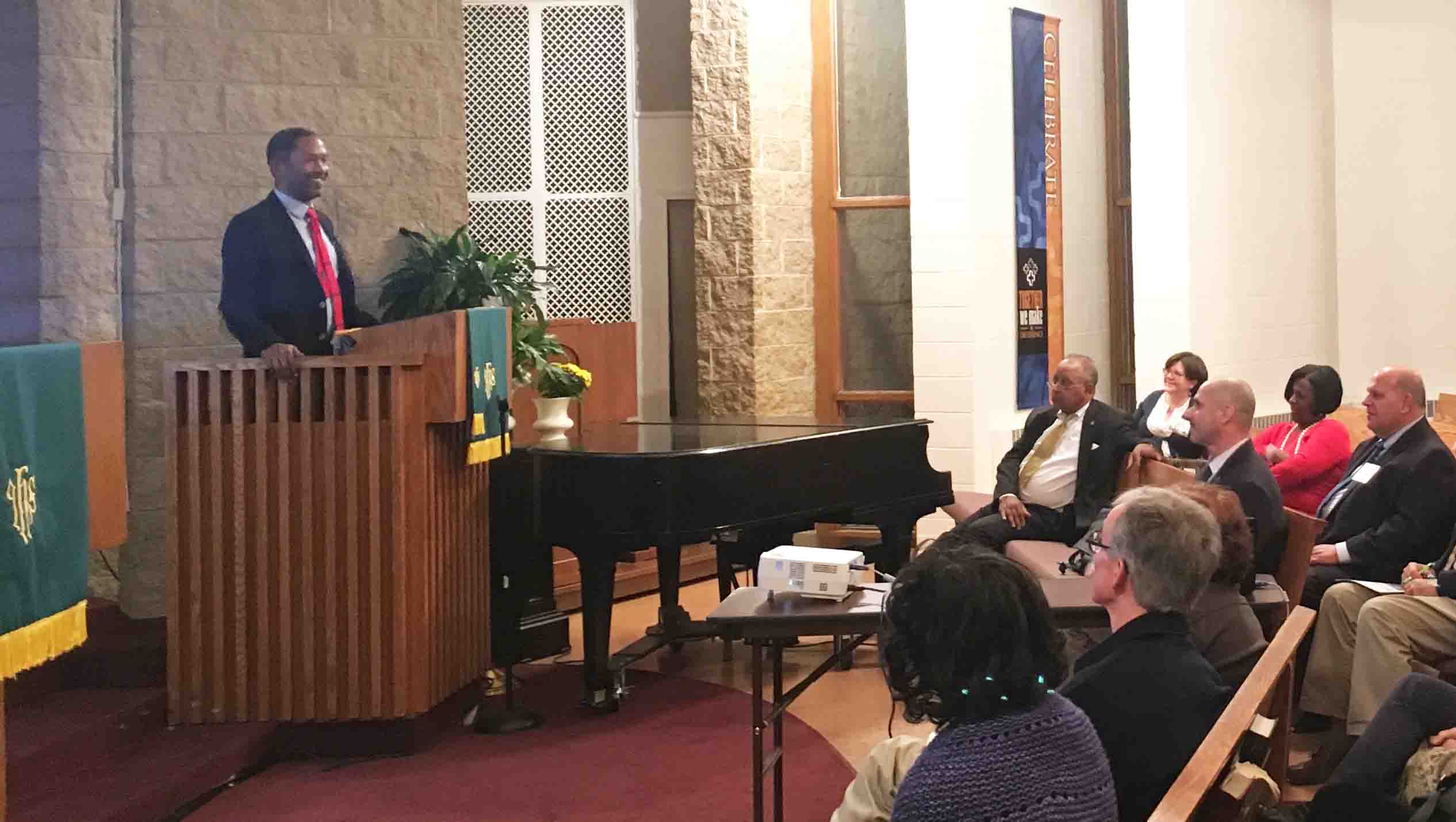
In the wake of President Donald Trump’s executive order calling for the Department of the Interior to review the status of national monuments, residents assembled in the Dixwell neighborhood on Wednesday evening to hear about the preservation of African-American historical sites.
Brent Leggs, historical preservation expert and professor at the University of Maryland, gave a lecture at Dixwell Avenue Congregational United Church of Christ on Nov. 8. During the talk, Leggs emphasized that preserving sites of achievement, activism and architecture represents a way to balance public memory and to tell new stories about African-American contributions.
“My personal and professional concern is preserving black history,” Leggs said. “More communities should share in the responsibility of telling the full American story.”
Over the course of the lecture, Leggs reflected on hidden birthplaces of the abolitionist movement, as well as unknown birthplaces of activism. He spoke about his time living in Boston in Beacon Hill, where he marveled at the historical landmarks around him — such as the African Meeting House, where the abolitionist movement was born, and the home of abolitionist leader Frederick Douglass. But many birthplaces of activism that are not as well-known may be at risk of becoming obsolete and demolished.
Leggs, who also serves as a senior field officer for the National Trust for Historic Preservation, called on New Haveners to preserve these historic places in their own communities. For example, Dixwell Avenue Congregational United Church of Christ is made up of a predominantly black congregation, New Haven Preservation Trust President Rona Johnston said, and it is the oldest black United Church of Christ in the nation.
According to Leggs, the subject of the lecture represents a prominent theme in his life’s work: a commitment to telling the stories of black Americans, Latino Americans, Asian-Americans, Native Americans, women and LGBTQ people.
But Leggs noted that preservationists have not always taken up these causes, saying that his generation includes the first academically-trained historic preservation practitioners who “look like [him].”
“It has taken the preservation movement time to appreciate and bring greater awareness to the importance of preserving African-American places,” Leggs said.
The preservation movement has become especially urgent in recent months, after Trump issued an executive order charging Interior Secretary Ryan Zinke with reviewing and providing recommendations on whether national monuments deserve their designation and the protections it entails.
Attendees expressed excitement about the historical content of the talk and the subject’s relevance to the community.
Adrienne Rogers, who belongs to the church, said she thought the lecture was especially important for the younger generation of the attendees “because they need to know the facts.”
As she looked at scrapbooks presented for the event, New Haven resident Beverly Barne recalled events at another historic African-American site, the Dixwell Q House, which was demolished in 2003 but will soon be rebuilt to serve as a community space for the Dixwell neighborhood.
The lecture drew attendees outside from New Haven’s borders, such as Susan Bettigole of Milford. Bettigole said she attended the event because she enjoys learning about other cultures and their needs.
“I care about spreading the message that preserving African-American spaces is important and meaningful work,” Leggs said.
Dixwell Avenue Congregational United Church of Christ was founded in 1820.
Christina Carrafiell | christina.carrafiell@yale.edu







